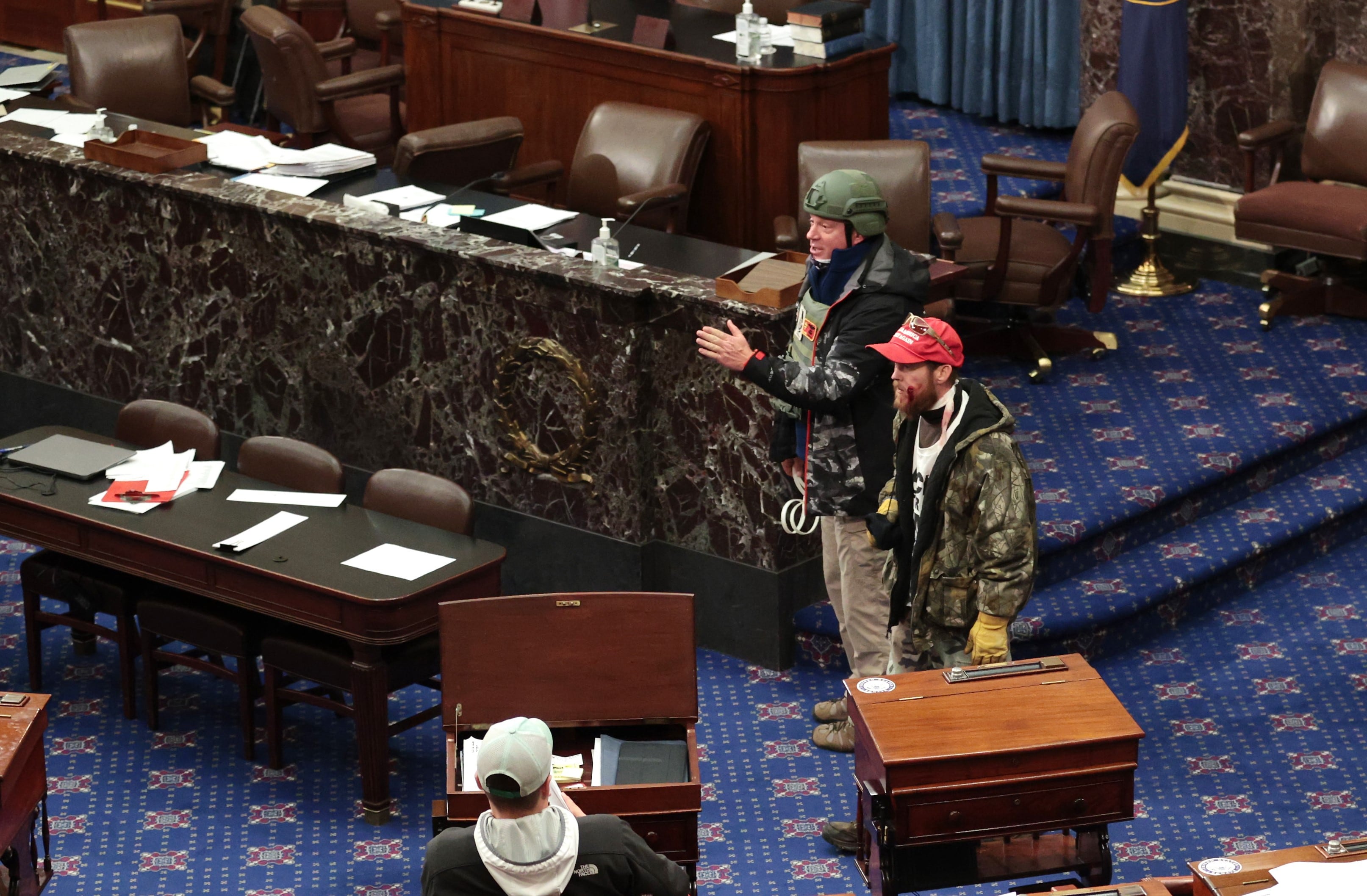A retired staff sergeant who pleaded guilty to a sexual assault that occurred after his time as an active duty Marine has asked the Supreme Court to decide whether his prosecution under military law was unconstitutional.
Retired Staff Sgt. Steven M. Larrabee in November 2015 sexually assaulted a civilian bartender at a bar in Iwakuni, Japan, and recorded it on his phone, according to his cert petition, the document in which he asked the court to review his case.
After Larrabee, then a member of the Fleet Marine Corps Reserve, was charged under military law, he pleaded guilty to sexual assault and indecent recording. A military judge sentenced him to 10 months’ confinement and a dishonorable discharge, according to the petition.
Enlisted Marines with more than 20 years but less than 30 years of active service can choose to be transferred to the Fleet Marine Reserve, according to the cert petition.
Despite the name, it’s not like the Marine Corps Reserve — it’s a “de facto retirement status,” Larrabee stated, with the possibility that members can be summoned to service again in case of war or national emergency.
In exchange, members of the Fleet Marine Reserve receive retainer pay, unlike non-retirees in the Individual Ready Reserve, or IRR. Members of the IRR generally aren’t subject to the Uniform Code of Military Justice, Military Times previously reported.
Larrabee appealed his conviction, arguing that military law shouldn’t apply to him because he was no longer in the military. He maintained he should have instead been tried under civilian law, Military Times previously reported.
After getting rebuffed by appeals courts, he asked the Supreme Court to review his case, filing cert petitions first in 2018 and again in May.
Though the Supreme Court in early 2019 declined to hear his case, a federal judge in D.C., Richard J. Leon, in 2020 agreed with Larrabee that the military prosecution he faced was unconstitutional.
RELATED

Under current federal law, courts-martial can try members of the Fleet Marine Reserve or the Fleet Reserve, the equivalent for the Navy. Congress passed that law due to the clause in the Constitution that lets it “make Rules for the Government and Regulation of the land and naval Forces.”
But Larrabee argued that retirees in the Fleet Marine Reserve “are functionally living as civilians.” As a result, in his view, that constitutional clause shouldn’t apply.
The Justice Department’s Office of the Solicitor General, which represents the government, argued in 2018 that members of the Fleet Marine Corps Reserve and Fleet Reserve are still part of the naval forces. The office’s brief noted that some of these retirees were called back to active service during recent decades’ conflicts.
It’s far from guaranteed that the Supreme Court will take up the case. The justices receive about 7,000 to 8,000 cert petitions each year but hear only around 80 cases, according to SCOTUSblog.
The last time Larrabee asked the justices to review his case, in 2018, they declined, after lawyers for the government pushed back on his claims and indicated that there were still questions for appeals courts to resolve before the Supreme Court should take a look at the case.
By refusing to take up the case, the court left in place the status quo, which lets members of the Fleet Marine Corps Reserve and Fleet Reserve face prosecution under military law.
Two appeals courts have since agreed that these retirees could be tried under military law, but they arrived at that conclusion through “divergent — and independently unpersuasive — rationales,” Larrabee argued in his cert petition this year.
Larrabee warned in the petition that lower courts’ rulings may affect the country’s two million retirees, even those who aren’t in the Fleet Marine Corps Reserve or Fleet Reserve. Federal appellate courts have found that retirees from the active component can be subject to the Uniform Code of Military Justice, according to the Congressional Research Service.
It could be possible for retirees to be tried under military law for actions that are legal under civilian law — such as anti-war speech or speaking contemptuously of the president — Larrabee argued.
There could even be implications for veterans with ties to the Jan. 6, 2021, attack on the U.S. Capitol, Larrabee indicated. In June 2021, then-Rep. Elaine Luria, a Democrat from Virginia raised a military prosecution as a possibility for retired Army Lt. Gen. Michael Flynn for appearing to endorse a coup, CNN reported. As a retired soldier, Flynn was not part of the Fleet Marine Reserve or Fleet Reserve, which are for retirees from the sea services.
In a 2019 Lawfire post, retired Maj. Gen. Charles J. Dunlap Jr., a former deputy judge advocate general of the United States Air Force and a professor at Duke Law School, emphasized that Larrabee had chosen to transfer to the Fleet Marine Reserve rather than sever his military ties entirely.
“I recognize that (Larrabee) may now regret transferring to the Fleet Marine Reserve given the outcome of his trial, but my bet — based on literally everyone I know — is that the overwhelming majority of retired military personnel are proud of their service, and would hardly be pleased to have it downgraded to some lesser ‘connection’ simply so that a rogue vet might not be held accountable in the military justice system,” Dunlap wrote.
The Justice Department declined to comment on the case. It has until June 7 to file a response to Larrabee’s petition but has requested another month.
Steven Vladeck, one of Larrabee’s lawyers, did not respond to a Marine Corps Times request for comment.
The case is Steven M. Larrabee v. Carlos Del Toro, Secretary of the Navy, et al.
Irene Loewenson is a staff reporter for Marine Corps Times. She joined Military Times as an editorial fellow in August 2022. She is a graduate of Williams College, where she was the editor-in-chief of the student newspaper.




